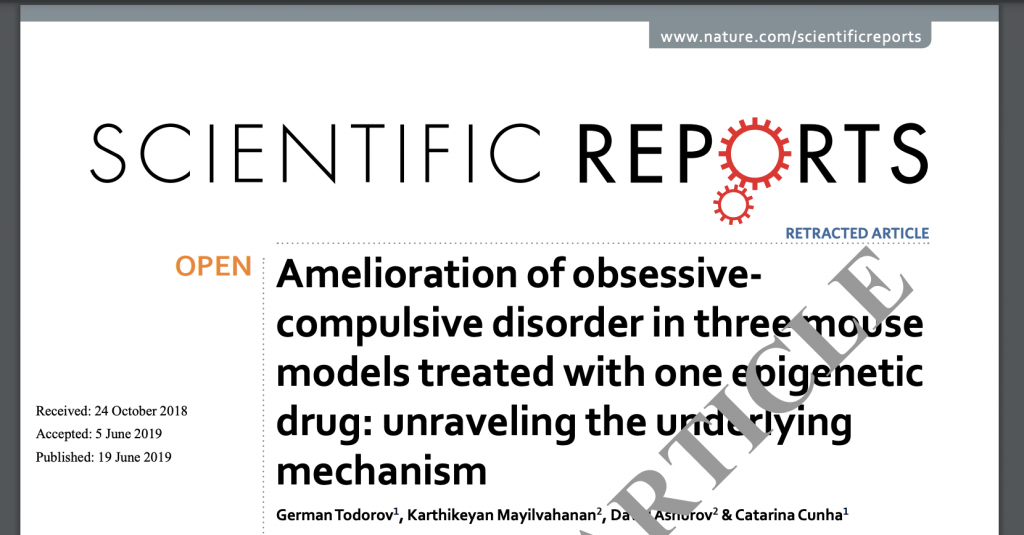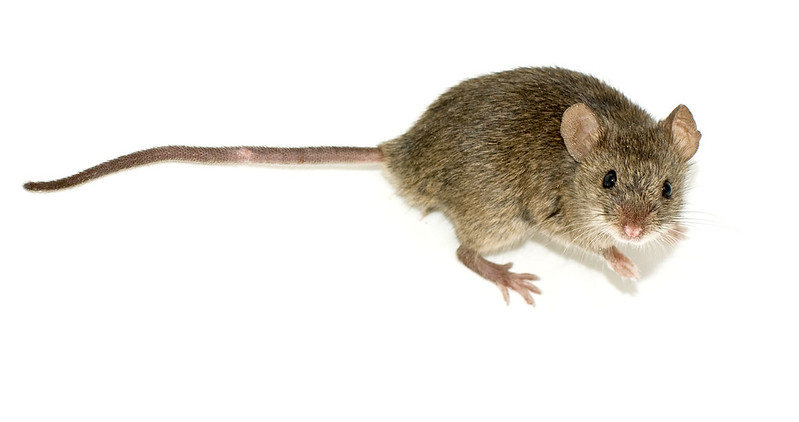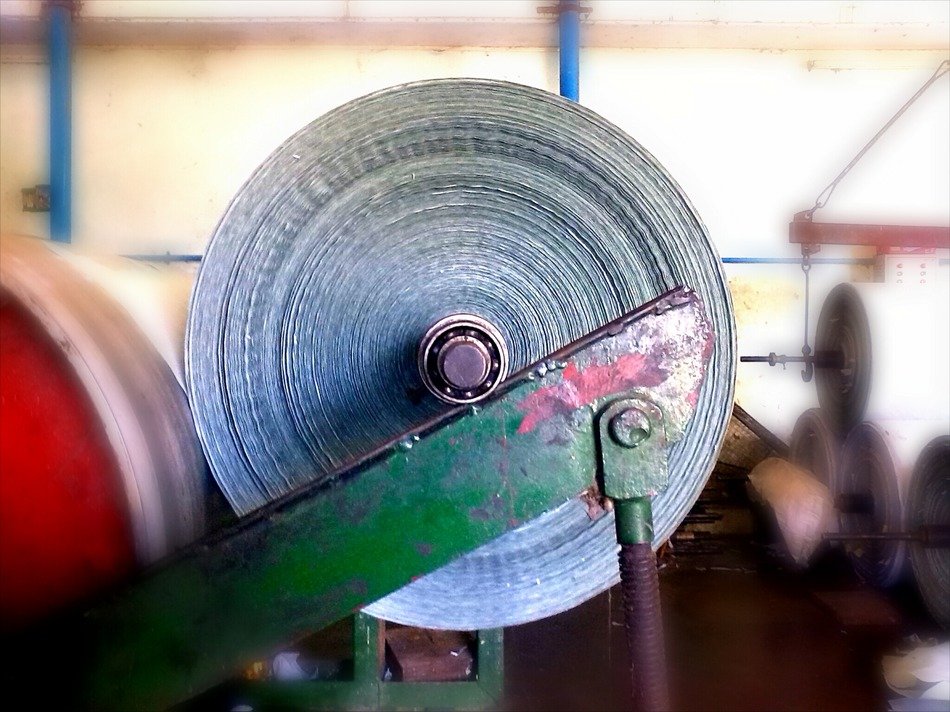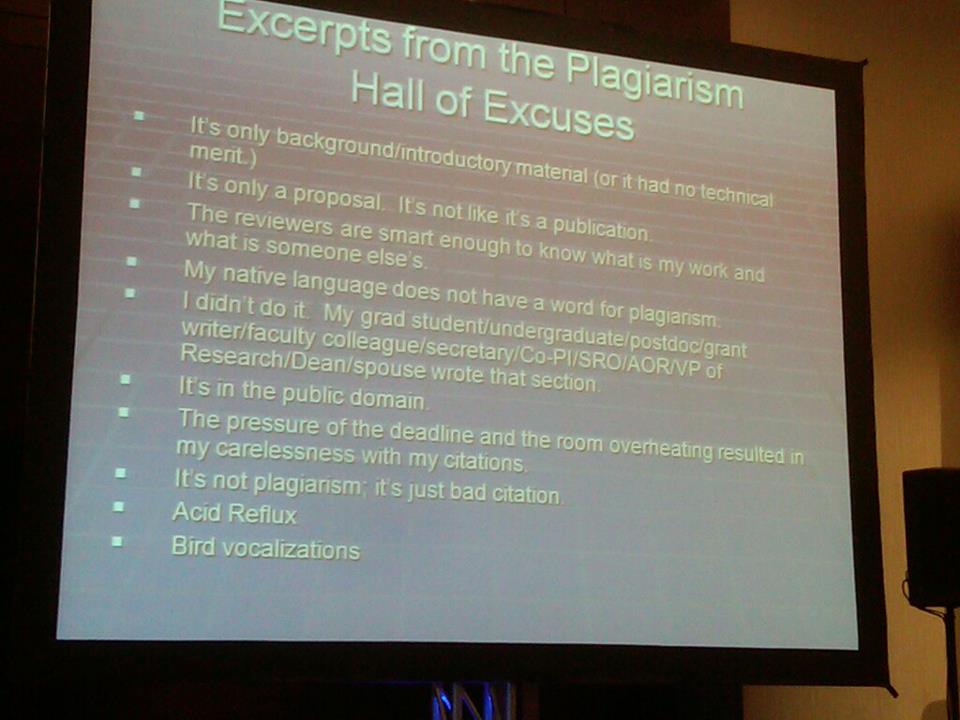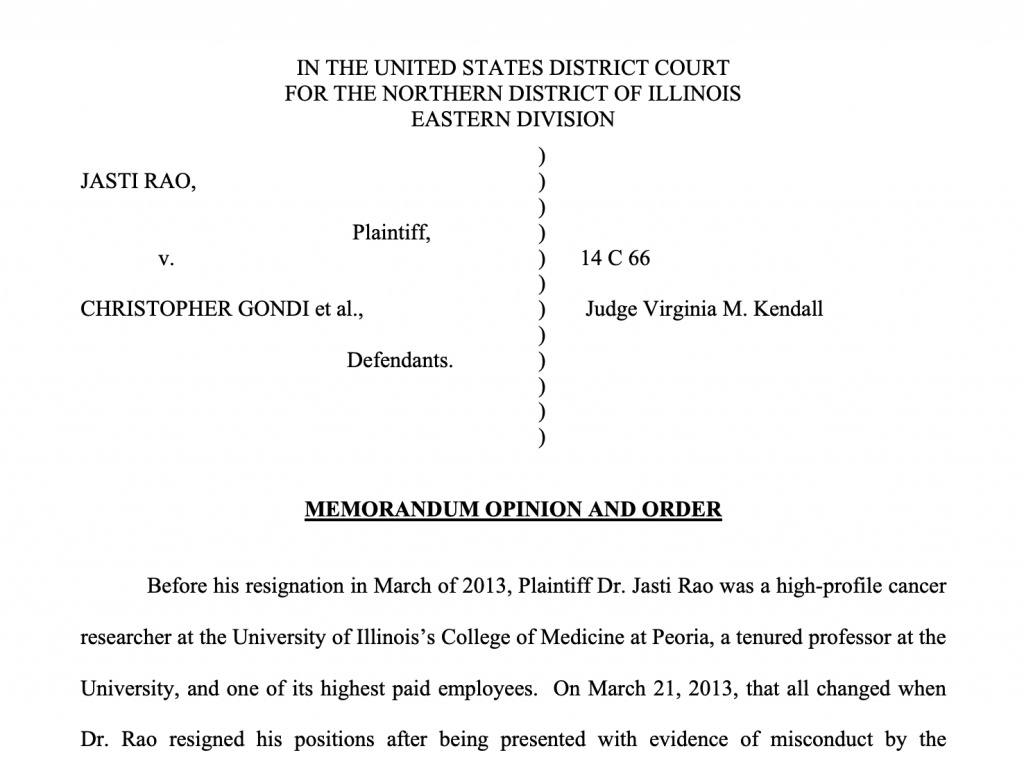
Jasti Rao, a former star scientist at the University of Illinois College of Medicine at Peoria whose career flamed out over concerns about misconduct, gambling and allegations that he had mistreated employees, is now up to 16 retractions.
The International Journal of Oncology, a Spandidos title, has retracted three of Rao’s papers dating back to 2011, citing the presence of “falsifying elements” in the images.
Here’s the notice for the 2011 paper “Oncogenic role of p53 is suppressed by si‑RNA bicistronic construct of uPA, uPAR and cathepsin‑B in meningiomas both in vitro and in vivo”:
Continue reading “Falsifying elements” prompt retraction of three more papers by former “Peorian of the Year”